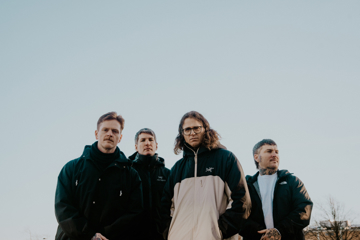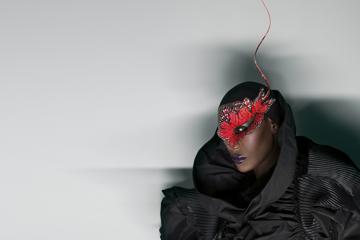Social Cinema
There’s going to be a lot more aboriginal people in the audience; it’ll be good to see it in a cinema with a few more blackfellas
Wayne Blair has big dreams for his debut feature film, The Sapphires. Not of box office glory or awards-show trophies, but, he hopes, for social change. “I want to help change perceptions of Aboriginal people,” says the 41-year-old director, who makes the transition from television to film with the feature. “I want as many people to see it as possible so we can give the world a different angle on who we are. I want people in this country to see that Aboriginal people did participate in 1968.”
Ahhh, yes, 1968. That most depicted of years; the counter-cultural revolution, the civil rights struggle, and the war in Vietnam. Such staples of cinema that it's strange to imagine there'd be any kind of untold story to tell about such a year. But The Sapphires recounts a lost chapter —a veritable narrative curio— of Australian history that found an all-Aboriginal girl group performing for GIs in Vietnam.
It was a story that remained even untold for those who were there; actor Tony Briggs based the screenplay on the experiences of his mother who, through his youth, he was barely aware of. “He was in his mid-30s, and he'd never really heard the whole story,” Blair recounts. “But one night, his mum sat him down and told him the whole thing, all the details. And he thought 'Shit, I better write about this.'”
At first, the story of The Sapphires was turned into a stage play —and produced, in Melbourne, by the MTC— before being adapted to screen. The film is endlessly, relentlessly feel-good, with even its moments of drama and tragedy being in service of future emotional payoffs; which, I guess, makes it perfect Opening Night Film fodder. Thus, this week, it launches the Melbourne International Film Festival at a gala screening, followed by an after-party revue featuring the pic's star, Jessica Mauboy, performing.
Don't miss a beat with our FREE daily newsletter
“There's going to be a lot more aboriginal people in the audience; it'll be good to see it in a cinema with a few more blackfellas,” Blair says of the opening night — and that's very much the tenor of the conversation. He's not interested in swapping travel stories of filming on location in Vietnam (“in some ways I didn't even get to notice I was in Saigon; I was just too busy working”) nor hyping the impressive dramatic performance of Irish comedian Chris O'Dowd. Instead, talking to the media is a chance to redress the media itself.
“There's not that many opportunities that people get to depict Aboriginals in a way that's different to how we're portrayed by the Australian mass media, so it's important to give out a positive stereotype, rather than what you get in The Age or The Herald-Sun,” Blair says. “[When I was] growing up in this country, there were no Aboriginal people portrayed positively in the media at all. So, you always followed Michael Jackson or Prince or the West Indian cricket team; black people who were achieving in life.”
The Sapphires has already found criticism for allying Aboriginal struggles with the American civil rights movement; its use of stock footage of Martin Luther-King, for example, feeling like a way of making a picture marketable in America. But Blair retorts that this was how history played out. “The black civil rights movement in America was hugely influential for people in Melbourne and Sydney,” he says. “Because there was no Aboriginals in the Australian media, it meant so much; seeing that civil rights struggle was the spark that started the black pride movement in Australia, in Redfern in the 1970s.”
Of course, Blair doesn't see this as ancient history, either, the eternally-troubled racial climate in this country persisting. “A lot hasn't changed in Australia since 1968,” Blair says. “Social progression has been slow. It's still hard for Aboriginal people in Australia, and you could argue that their socio-economic status hasn't changed one bit in 40 years.”







